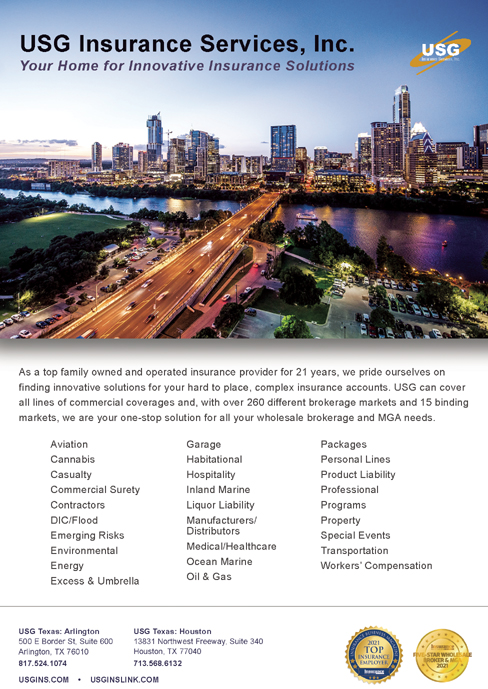When J.D. Power released its 2022 U.S. Auto Insurance Study on June 13, it announced the highest customer satisfaction award for Texas Farm Bureau Insurance Companies, which placed the highest over all other Texas auto insurers. This marked the 11th consecutive year Texas Farm Bureau outranked all other Texas auto carriers. This year’s Texas Farm Bureau score was 873 out of 1,000.

Texas Farm Bureau ranked highest in all five study factors: interaction, price, policy offerings, billing process and policy information.
Following a period of a record high number of serious collisions, skyrocketing used-vehicle prices and surging repair costs, auto insurers lost some level of popularity with policyholders experiencing significant price increases in auto insurance. J.D. Power acknowledged the tough environment for auto insurers to achieve customer satisfaction.
“The current situation is a tough one for auto insurers, but it is not impossible in the current inflationary environment to build customer satisfaction and retention,” said Robert Lajdziak, director of insurance intelligence at J.D. Power. “J.D. Power finds two bright spots in the data for insurers. First, those insurers who are transparent and notify customers in advance of price increases can blunt the negative effects of a price increase. Second, usage-based insurance is growing quickly, with an all-time high number of customers adopting these programs.”
Mike Gerik, executive vice president for the Texas Farm Bureau Insurance Companies said, “This award is such an honor, and we were so pleased that we received word that we had achieved the highest score for the 11th consecutive time. We take pride in our membership and are committed to delivering a superior level of personal service to our 500,000-plus member-families every day.”
Trailing Texas Farm Bureau in the J.D. Power Texas ranking were State Farm, with a score of 851; GEICO, 843; AAA, 835; Allstate, 832; Progressive, 831, and Farmers, 819. J.D. Power acknowledged USAA’s score as 885, but footnoted it, “Brand is not rank eligible because it does not meet study award criteria.”
Texas Farm Bureau’s customer satisfaction score placed it fourth in the entire country and only six points off the U.S. leader.
For the study, J. D. Power divided the U.S. into 11 geographic regions, with the state of Texas being a region unto itself. The only insurers attaining higher customer satisfaction scores were Wawanesa in California with a score of 879, and Erie Insurance in the North Central Region and Farm Bureau Insurance-Tennessee in the Southeast, both with a score of 876.
Other key findings of the 2022 study were:
-Rising prices stifle customer satisfaction. Overall customer satisfaction with auto insurance providers is 834, down from 835 a year ago. However, customers’ satisfaction with the price of their policies is 769, down a significant five points from 2021.
-Usage-based insurance sees record adoption. Participation in usage-based insurance programs which use telematics technology to monitor driving habits and assign risk and pricing accordingly, has doubled since 2016, with 16 percent of auto insurance customers now participating in such programs. Price satisfaction among customers participating in these programs is 59 points higher, on average, than among customers overall.
-It pays to get out in front of bad news. Premium increases do not bode well for customer satisfaction, but insurers who are proactive about increases and notify customers in advance are able to mitigate the negative effects the generate. In the past year, 59 percent of customers experiencing a price increase were notified in advance by their insurer. This was up from 44 percent in 2016.
-Agents benefit when customers use online self-service tools. The reason is efficiency, as customers can handle transactions quickly while spending more valuable time with an agent or CSR.
The auto insurance study, now in its 23rd year, examines customer satisfaction in five factors. The U.S. study was based on responses from 36,935 auto insurance customers, with the survey in the field from January through April 2022.




Recent Comments